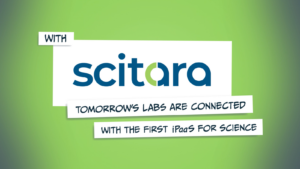Although seemingly oxymoronic at first, isn’t it funny how the future can be certainly uncertain? While we can make as many predictions about it as we want and account for as many factors we can think of, there’s always something unexpected. To further drive home this little oxymoron, the future is assuredly full of change whether we like it or not, forcing us to adjust and spend additional time and resources to account. Keeping this ambiguity in mind can be quite beneficial to anyone constructing anything for the long term. Therefore, if you wish to avoid the chaos brought on by the unexpected and turn the future into a certainty like death and taxes, it might be wise to look into future-proofing your lab, allowing it to accommodate changes seamlessly, and, ideally, without effort.
So, what exactly does “”future-proof” mean? In short, it can be defined as making something— like software, technologies, and even infrastructure—that is resistant to the effects of unforeseen circumstances that would render these things obsolete. For example, in our context, lab informatics systems or instruments are upgraded or replaced entirely to “best-of-breed” solutions. On the other hand, something as simple as software not functioning properly or not at all on newer, 64-bit operating systems (OSs) like Windows 10 and 11 can be just as challenging. If the lab were future-proofed, the number of bits wouldn’t matter; the software would just say, “cool,” and continue working as normal.
To adequately future-proof the lab, looking at the changes made today can help ascertain tomorrow’s needs. Let’s return to the above example to start. Alongside OSs, software can just stop working due to updates or patches. Updates, be they large or small, can create unintended incompatibilities and break mission critical interfaces, or worse, the application itself. What happens when the equipment experiences catastrophic failure and prevents the lab from completing its work? That’s right! Time and resources are used to replace instrumentation or applications and re-learn how to use it. Anything that helps with these changes future-proofs your lab.
Make Data Integrity and Regulatory Compliance a Priority
That’s just the technical aspect of future-proofing. There are less tangible parts to it as well, a couple of which we’ll touch on here. The first is regulations. Have you ever had to modify your workflow or adopt new equipment or software to comply with new regulations? If so, you’re probably familiar with the frustration that comes with it. If not, lucky you. Having a platform that changes on the fly with new guidelines—such as ones pertaining to the environment or pharmaceutical manufacturing—avoids the upheaval brought on by bureaucrats.
Speaking of upheaval, chances are the current employment environment has caused some old faces to leave and new ones to appear. With fresh recruits comes the task of teaching them your workflow. Depending on its complexity, this could take a while, and older, archaic workflows usually bring with them complications that can prolong the on-boarding process. And if those new folks dip for one reason or another, well, that’s a lot of wasted time. Furthermore, you’ll have to do all that training again for the next person, and who knows if they’ll stay and for how long? Adopting workflows and systems that don’t require as much investment in teaching new users and are more streamlined can help make short-timers at your company less of a headache.
True Data Mobility into the Future Ensures Your Informatics Ecosystem Investment Is Secure
Even though you can’t predict the future, you can prepare for it. Incorporating Scitara’s iPaaS for science, Scitara DLX™ into your lab infrastructure today is a strategic way to mitigate changes that will inevitably impact your lab tomorrow. This powerful and flexible solution makes it much easier to integrate new instrumentation or applications into your lab’s workflow, allowing you to accommodate new regulations and test methods, and easily train new employees with a range of skills and experience. This can give your business a significant advantage, allowing you to adapt to change without disrupting your operations.
Find out more, schedule a demo and see it for yourself!
About Scitara
Scitara is a global provider of cloud-based, industry-specific platform and solutions for the life sciences industry. Based in Massachusetts, the Scitara leadership brings decades of experience in solving digital challenges for the scientific laboratory: Meet the Modern Lab™. For more information, please visit www.scitara.com.
